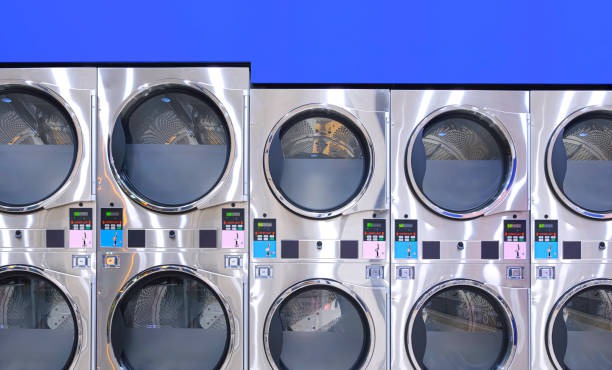Having correct teeth alignment is essential for a friendly, beautiful smile. However, not everyone is born with perfect teeth. Often, people require some form of straightening treatment. A common method is the application of braces. But a newer, less painful, and more convenient alternative is Invisalign.
This treatment involves using clear aligners that are almost invisible to the naked eye. When you wear them, you can still confidently smile without feeling self-conscious. While quite beneficial, wearing Invisalign requires you to take note of certain activities that may affect the effectiveness of the treatment or harm your oral health. Here, we will discuss which activities you need to avoid when undergoing Invisalign treatment.
Chewing Gum and Other Tough Foods
While undergoing treatment with Invisalign, it’s essential to note that your diet should be adjusted to ensure optimal results. There’s a need to avoid certain types of food, including those that are notably tough or sticky. These can negatively impact not only your overall oral health but also the actual clear aligners that are part of the Invisalign system.
- Chewing gum: Gum has a sticky nature that makes it adhere to the aligners’ surfaces. When it sticks, it becomes hard to remove and may cause the aligners to lose their correct form. This change in shape can negatively impact the straightening process of your teeth.
- Hard Foods: Things like ice, raw vegetables, and hard candies can cause the aligners to crack under pressure involved in biting or chewing these types of food. Once your clear aligners are cracking, they may fail to function as expected, which can prolong your teeth-straightening treatment.
- Sticky Foods: Similar to chewing gum, sticky foods like caramel or taffy can clump onto the aligners. This can make the aligners hard to clean and may also affect their shape, rendering them less effective in aligning your teeth.
In our day-to-day lives, achieving wholesome dental health is crucial, which is the primary objective of family dentistry. Family dentistry aims to ensure that every family member, both young and old, can proudly flaunt a healthy smile. This specialty in dentistry emphasizes the significance of preventive dentistry.
It teaches oral health habits early on to prevent dental issues down the line. From routine check-ups and cleanings to preventive guidance, family dental specialists provide comprehensive dental care to ensure the whole family maintains a healthy smile.
Smoking and Drinking Alcohol
Being under Invisalign treatment requires the patient to exercise a specific level of restraint. This is not limited to hard, sticky foods but also extends to lifestyle habits such as smoking or alcohol consumption. These lifestyle choices can complicate your Invisalign treatment and hinder the progress of your tooth alignment.
- Smoking: The smoke from cigarettes contains chemicals that can discolor the clear aligners, making them appear yellowish. This discoloration can make them more visible, which might make you feel more self-conscious.
- Alcohol: Alcoholic beverages, especially pigmented options like red wine, can stain your clear aligners. This may alter their appearance, making them more noticeable. Alcohol also has elements that can damage oral health, especially if consumed in large quantities.
Children’s dentistry, also referred to as pediatric dentistry, is a dental specialty focusing on the oral health of kids and adolescents. One primary characteristic of children’s dentistry is that it focuses significantly on teaching kids about good oral hygiene habits. This emphasis assists in ensuring that children understand the importance of maintaining a healthy set of teeth.
If children build solid oral health habits at a young age, they are less likely to need correctional dental treatments such as braces or Invisalign in the future. When looking at a reputable center for dental care for children in Jaffrey, a positive environment is a crucial factor so kids feel comfortable during their dental visits.
Incorrect Cleaning and Maintenance
Routine cleaning and maintenance of the Invisalign aligners is a non-negotiable part of the process. Neglecting to clean the aligners as advised by your dentist can lead to a build-up of bacteria. This can lead to significant issues with your oral health, like gum disease or tooth decay.
- Poor oral health: Failing to clean your aligners properly may lead to a build-up of bacteria. This can cause gum disease, and cavities and can damage your oral health and hygiene.
- Bad odor: If you neglect cleaning your aligners, they may start to smell. This can lead to bad breath—an unpleasant situation for both you and the people around you.
- Discoloration: Aligners can get stained if they are not cleaned regularly. These stains can make them more visible in your mouth, hence affecting the aesthetic advantage that Invisalign has over traditional braces.
Lack of Consistency in Using Aligners
Putting your aligners aside for extended time periods can hinder the progress of your treatment. For optimum results, you need to be consistent in wearing your clear aligners.
- Inconsistency: You should be wearing your aligners for at least 20-22 hours per day. If you don’t, this might slow down the teeth straightening process, hence prolonging your treatment time. Achieve a perfect smile with Invisalign in no time.
- Not replacing aligners: It’s important to follow your dentist’s instructions on when to replace your Invisalign aligners. Failing to put on the new set of aligners as per the schedule can affect the effectiveness of your treatment.
Conclusion
To sum up, taking care of your oral health when undergoing treatment with Invisalign involves more than just wearing your aligners regularly. You must also take note of what you eat, avoid certain habits like smoking, regularly clean your aligners, and follow your treatment schedule.
By considering these factors, you are more likely to achieve your aim of a perfect smile in no time. Remember, regular visits to your family dental specialist or children’s dentist are just as crucial, so you can maintain your oral health even after your Invisalign treatment.



